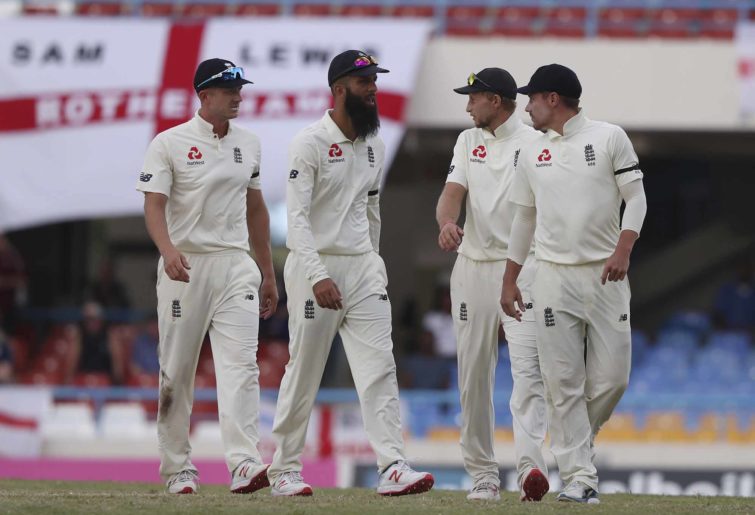Bazball comes first over hit and giggle: Stokes pulls out of T20 World Cup to focus on Tests
England's chances of retaining the Twenty20 World Cup have been hit for six with the news Ben Stokes has opted out of selection for…
It’s the unexpected losses that hurt the most.
England were convincing favourites for much of the first three days of the first Ashes Test. Early in the third day, as Chris Woakes and Stuart Broad were putting on an unexpectedly sprightly 65-run partnership, Australia were predicted by CricViz as having only a nine per cent chance of victory. Behind the efforts of Steve Smith, Matthew Wade, Nathan Lyon and Patrick Cummins, Australia turned the match around and claimed an impressive victory.
As has already been noted by Daniel Brettig, this match bears a distinct similarity to Australia’s victory in the first Ashes Test in 1989. In both cases Australia entered the game with a poor recent history in England.
In 1989 Australia entered this series having lost the last three Ashes series in England. This year’s team carries the history of Australia’s losses in the last four series in England. In both 2019 and 1989 the English team entered the Ashes confident of continuing this strong recent form but finished the first Test on the losing side. Australia will hope these similarities continue through the rest of the 2019 Ashes and they repeat the 4-0 series victory achieved by the 1989 Australians.

(AP Photo/Ricardo Mazalan)
However, England would also do well to heed the lessons of defeat. In 1989 England made five changes between the first and second Test and ultimately played 29 different players over the six-match series. A total of 13 players played only one match. England’s selectors of the era treated team selection like a blinded darts player, endlessly throwing projectiles at a wall hoping to find the bullseye. Yet all the selection uncertainty did was destroy the morale of the team and help lead to a series loss.
There will be the temptation for England to make wholesale changes to the team. After all, selectors often want to give the sense that they are proactive, and there is little that is sexier than change. However, England need to resist this urge and make a statement of confidence within the members of their team.
There is pressure on players like Jason Roy, Joe Denly and Jonny Bairstow, but for various reasons they are all worth sticking with. Roy has played only two Test matches and it is too early to make a definitive judgment on his qualities as a Test player. While his dismissal in the second innings against Australia did show poor judgment, that is part of the risk of Roy. Yes, he will make mistakes, but he has the potential to win a game for England.
Denly equally has played only four Tests and should play be given a further chance to prove his worth. Denly’s issue seems to stem from an inability to convert starts. In seven of his eight innings he has reached double figures but has only once made more than 50. This should change in time. The greatest challenge for a batsman is to make a start; the rest generally comes easier. Denly is making those starts, so England should give him the chance to convert.
Bairstow’s recent Test record is poor. He has averaged only 23.68 in Tests since the start of 2018, has passed 30 twice in his last 16 Test innings and has made five ducks in this period. However, do not necessarily mistake Bairstow’s run as bad form – we are not far from a World Cup in which he scored two centuries and was England’s second-highest scorer. That indicates Bairstow isn’t necessarily seeing the ball badly. Also, Bairstow has a history of performing well under pressure, and having Ben Foakes breathing down his neck may inspire him to greater things.
While there is a virtue in showing confidence in their team, I am not saying England should name an unchanged side for the second Test. Firstly, Jimmy Anderson will not recover from his calf injury and is likely to be replaced by Jofra Archer or Olly Stone. Then there is Moeen Ali.
In many respects Ali does not deserve the pressure. Since August 2018 he has taken the most wickets in Test cricket at an average of 24.04. However, playing Australia has seemingly destroyed Ali’s confidence. He is virtually a walking wicket against Nathan Lyon and his bowling in the first Test was both relatively ineffectual and expensive.
It is also clear that Joe Root has lost confidence in Ali’s bowling. There were key occasions during Australia’s second innings that Root elected to bowl himself or Joe Denly. When a player’s mental performance is as clearly compromised as Ali’s, it is probably time for a change.
Outside of Ali and Anderson, the bravest step for England’s selectors to take would be to return the rest of the team that lost the first Test in humiliating fashion. That step would go a long way to rebuilding their confidence.
Ultimately these are still adept players and many of them have succeeded against Australia in the past. A statement of faith would give those players the chance to succeed again.